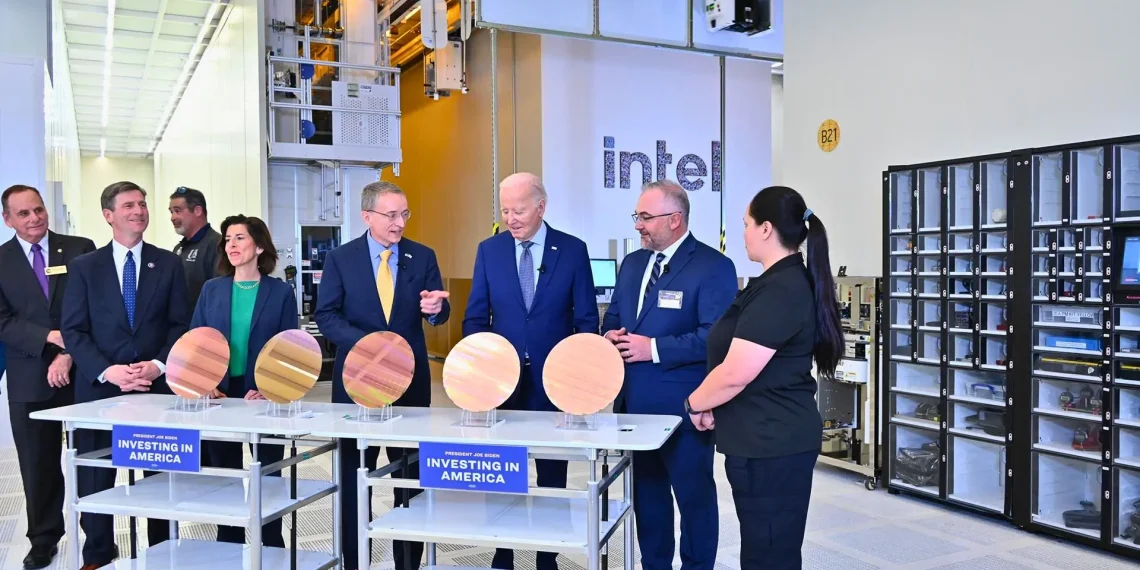The Biden administration has secured a groundbreaking agreement with Intel, allocating up to $8.5 billion in direct funding and an additional $11 billion in loans to enhance semiconductor manufacturing within the United States.
This investment, facilitated through the Department of Commerce, underscores the government’s dedication to revitalizing domestic chip production and fortifying national security.
President Joe Biden is poised to highlight the importance of this deal during his visit to Intel’s Chandler, Arizona campus, a crucial swing state in the upcoming presidential election.

The administration’s focus on showcasing its economic policies comes amidst ongoing endeavors to bolster US manufacturing and employment growth.
Commerce Secretary Gina Raimondo hailed the agreement as a pivotal move towards positioning the United States as a global leader in advanced chip manufacturing. With the aim of producing 20% of the world’s most advanced chips by 2030, the US seeks a substantial increase from its current level of zero.
Raimondo stressed the crucial role of cutting-edge chips in driving innovation across various sectors, including artificial intelligence and defense systems.
This funding announcement arrives amid heightened political tensions ahead of the 2024 presidential campaign. Biden’s narrative of economic resurgence and job creation faces scrutiny, particularly amidst public skepticism surrounding his handling of inflation and other economic challenges.
The administration’s efforts to revitalize US manufacturing and counter competition from China have emerged as central themes in the political arena.
Intel’s expansion initiatives, partly funded through the bipartisan 2022 CHIPS and Science Act, signal a significant boost for US semiconductor manufacturing while reducing reliance on Chinese suppliers.
The company’s pledge to invest $100 billion in US manufacturing over the next five years aligns with the government’s broader strategy to promote domestic chip production.

This collaborative endeavor between the public and private sectors underscores the importance of strategic investments in critical industries for national security and economic prosperity.
The agreement with Intel marks the administration’s fourth and largest investment under the CHIPS Act, demonstrating the government’s commitment to strengthening the semiconductor industry.
The funding is poised to bolster the construction of new fabrication facilities and modernize existing plants across Arizona, Ohio, New Mexico, and Oregon. The investment is anticipated to create 20,000 construction roles and 10,000 positions in manufacturing.





